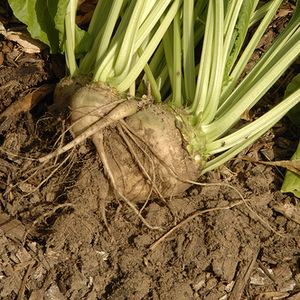USDA expects no actions under Feedstocks Flexibility Program

February 2, 2023
BY Erin Krueger
The USDA’s Commodity Credit Corp. announced on Jan. 27 that it does not expect to purchase and sell sugar under the Feedstock Flexibility Program for crop year 2022, which runs from Oct. 1, 2022 through Sept. 30, 2023.
The CCC is required to announce quarterly estimates of sugar to be purchased for the FFP based on crop and consumption forecasts.
Advertisement
Under federal law, processors of sugar beets and domestically grown sugarcane can obtain USDA loans when the harvest begins. The loans provide interim financing so that commodities can be stored after harvest, when prices are typically low, and be sold later, when prices are higher. When the nine-month loan matures, the processor can repay the loan in full or forfeit the collateral sugar to the USDA.
The FFP was reauthorized in the 2018 Farm Bill as an option to avoid sugar forfeitures. The program encourages the domestic production of certain biofuels, including ethanol, butanol and other marketable biofuels, from surplus sugar. The USDA sold surplus sugar to bioenergy producers in 2013 under the program.
In its announcement, the CCC said that the USDA’s Jan. 12 World Agricultural Supply and Demand Estimates report projects that fiscal year 2023 U.S. ending sugar stocks are unlikely to lead to forfeitures. Therefore, the USDA does not expect to purchase and sell sugar under the FFP for crop year 2022.
Advertisement
The USDA is expected to issue its next quarterly estimate regarding FFP on or before April 1, 2023.
Related Stories
Saipem has been awarded an EPC contract by Enilive for the expansion of the company’s biorefinery in Porto Marghera, near Venice. The project will boost total nameplate capacity and enable the production of SAF.
Global digital shipbuilder Incat Crowther announced on June 11 the company has been commissioned by Los Angeles operator Catalina Express to design a new low-emission, renewable diesel-powered passenger ferry.
Scientists at ORNL have developed a first-ever method of detecting ribonucleic acid, or RNA, inside plant cells using a technique that results in a visible fluorescent signal. The technology could help develop hardier bioenergy and food crops.
International Air Transport Association has announced the release of the Sustainable Aviation Fuel (SAF) Matchmaker platform, to facilitate SAF procurement between airlines and SAF producers by matching requests for SAF supply with offers.
Alfanar on June 20 officially opened its new office in London, further reaffirming its continued investment in the U.K. The company is developing Lighthouse Green Fuels, a U.K.-based SAF project that is expected to be complete in 2029.
Upcoming Events










